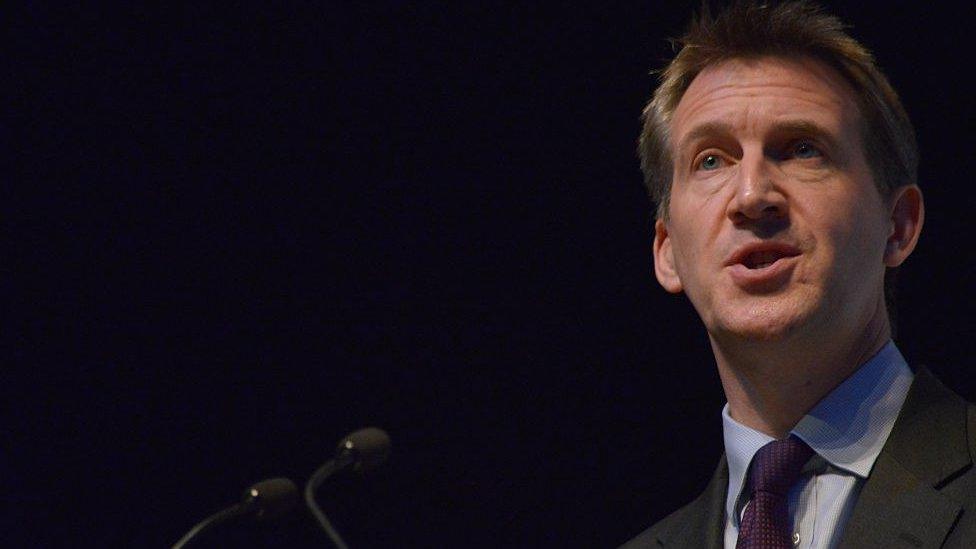Act now to save 'precious UK', English mayors urge PM
- Published
- comments

The signatories - including Dan Jarvis - warned about the possibility of the break-up of the 300-year-old union
Time is running out to "save the United Kingdom," more than 40 local leaders in England have warned Boris Johnson.
The group of mainly Labour politicians said support for Scottish independence should be a wake-up call for the PM to examine the constitutional status quo.
The signatories, led by South Yorkshire Mayor Dan Jarvis and including Greater Manchester's Andy Burnham, called for a review of how power is distributed.
The PM has insisted the union has shown its true worth during the Covid crisis.
He has pointed to the support made available across the whole of the UK to protect jobs and incomes, as well as the role of the armed forces in supporting testing.
Mr Johnson came under fire last month for reportedly saying that the devolution of powers to Scotland had proved a "disaster".
The SNP, who have run the Scottish government since 2007, have said they will press for a second independence referendum if they win a majority in elections to the Scottish Parliament next May.
In their letter to Mr Johnson, the group of mainly Labour and Liberal Democrat politicians, including the mayors of London, Greater Manchester and the Liverpool City Region, warned the break-up of the 300-year old union between Scotland, England, Wales and Northern Ireland was now a serious possibility.
'Losing faith'
The signatories, also including former Labour prime minister Gordon Brown and ex-Lib Dem leader Lord Campbell, said there was worrying evidence that a growing number of Scots were "losing faith" in the union.
While the "common danger" from Covid "might have been hoped to reinforce the ties" between the four nations, they suggested the crisis may have exacerbated "pervasive pessimism about our national unity and national decline".
"Time is fast running out. We can still save our country, but we need to act now," they write.
"Recent polls show a clear trend towards Scots losing faith in the Union, and a majority of Britons believe the UK is heading for break-up. That should be a clamorous wake-up call for us to examine the status quo.
"The Union in your care is important and precious, and we need you to protect it."
Wider crisis
The letter calls for a people's assembly or constitutional convention to consider what can be done to ensure a "free and equal partnership" between the nations of the UK, with powers "brought closer to the people".
Growing "disillusionment" in Scotland, the letter adds, was representative of a much wider political crisis in which people's desire to have greater say in local decision-making was being stifled by central government.
"We have seen the huge potential of devolution first hand, but also its weaknesses," the group writes.
"Especially in England, it is constrained by a lack of adequate powers and funding. Overall, we are still more centralised, and more regionally unequal, than any comparable country."
Without changes, it suggests, "the current relationship between our central government and the constituent parts of the UK is incoherent, often unjust, and ultimately unsustainable".
Mr Burnham and other mayors have claimed the recent row over which Covid tiers different regions should be placed into, and the level of economic assistance they should get, showed England had devolution in "name only".
A UK government spokesperson said people wanted to see politicians working together to face the challenges posed by Covid-19.
"This government is committed to levelling up all areas of the country, strengthening our Union and empowering our regions by devolving more money, resources and control away from Westminster."
Ex-chancellor George Osborne, the architect of Conservative changes to regional government over the past decade, recently urged ministers in Whitehall to be more courageous about de-centralising power.
While metro mayors across England were part of the "national conversation" in a way they had never been before, they needed more resources and powers to ensure a "balanced, healthy society," he added.